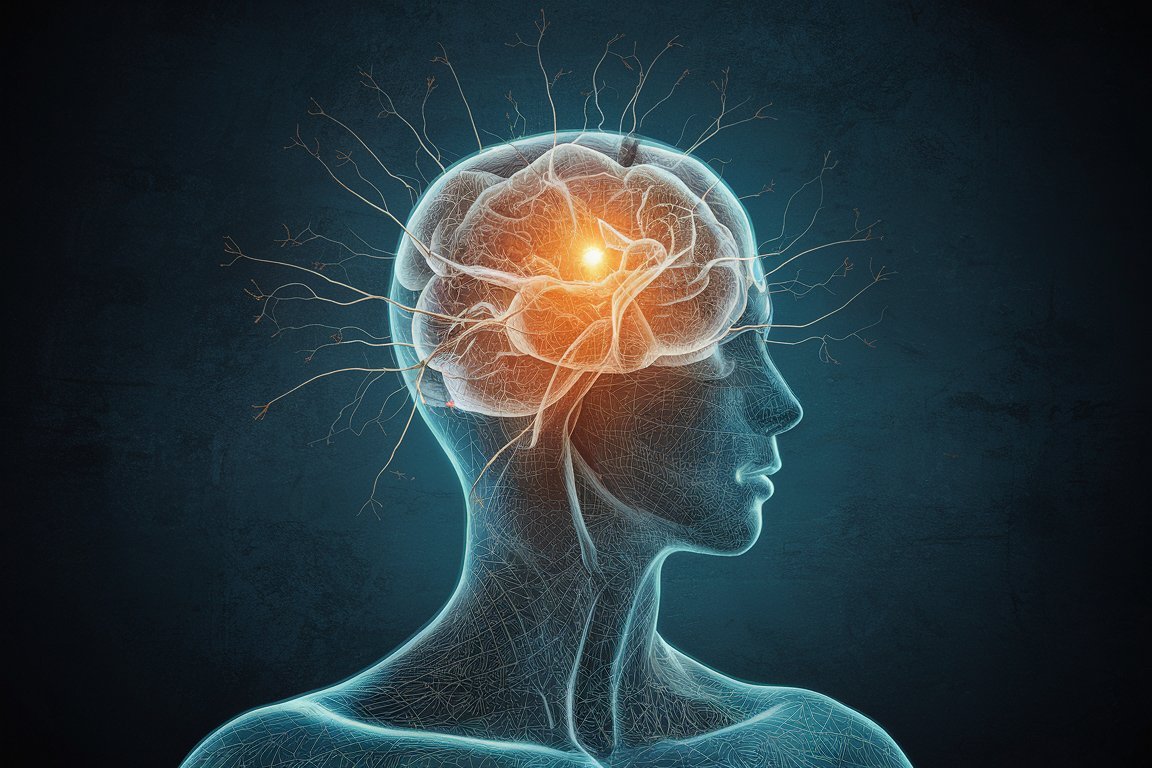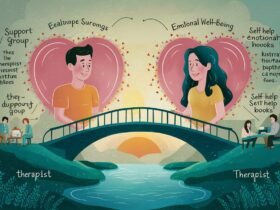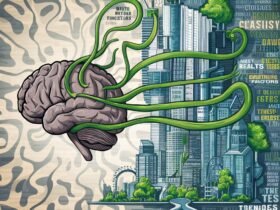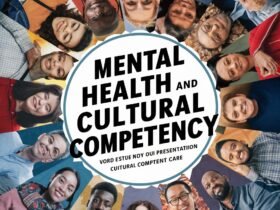The Impact of Trauma on Mental Health: Healing and Recovery
Hey there, young warriors! Today, we’re going to talk about a really important topic that affects a lot of people, even kids like you – trauma and its impact on mental health. Now, I know that might sound a little scary or confusing, but don’t worry – we’re going to break it down together and learn about how we can heal and recover from tough experiences.
First of all, let me ask you this: have you ever had something really scary or upsetting happen to you? Maybe you got hurt, or lost someone you loved, or went through a big change in your life that was hard to deal with. Those experiences can be called trauma – and they can have a big impact on how we think, feel, and act.
What is Trauma?
Trauma is a deeply distressing or disturbing experience that can have lasting effects on our mental and emotional well-being. It can be a one-time event, like a car accident or a natural disaster, or it can be ongoing, like bullying or abuse.
When we go through a traumatic experience, our body and mind go into survival mode – we might feel scared, angry, or numb, and we might have trouble thinking clearly or making decisions. These are all normal reactions to a scary or overwhelming situation.
But sometimes, even after the traumatic event is over, we might still feel those intense emotions or have trouble coping with everyday life. That’s when trauma can start to affect our mental health.
How Trauma Affects Mental Health
Trauma can affect mental health in a lot of different ways. Some common symptoms of trauma include:
- Flashbacks or nightmares about the traumatic event
- Avoiding people, places, or things that remind us of the trauma
- Feeling on edge or easily startled
- Trouble sleeping or concentrating
- Feeling numb or disconnected from others
- Negative thoughts or beliefs about ourselves or the world
These symptoms can be really scary and overwhelming, and they can make it hard to do the things we normally enjoy or feel good about ourselves.
Trauma can also lead to other mental health conditions, like:
- Anxiety disorders
- Depression
- Post-traumatic stress disorder (PTSD)
- Substance abuse or addiction
But here’s the good news: no matter how tough things might feel right now, healing and recovery are possible. With the right support and tools, we can learn to cope with the effects of trauma and start to feel like ourselves again.
Healing and Recovery
Healing from trauma is a journey – it takes time, patience, and a lot of self-compassion. But there are lots of things we can do to support ourselves and start to feel better. Here are a few ideas:
Talk to Someone You Trust
One of the most important things we can do when we’re struggling with trauma is to reach out for help and support. Talking to someone we trust – like a parent, teacher, counselor, or friend – can help us feel less alone and more understood.
It can be really scary to open up about tough experiences, but remember – you are not alone, and there are people who care about you and want to help.
Practice Self-Care
Self-care is all about taking care of ourselves – both physically and emotionally. When we’re dealing with trauma, it’s easy to forget about our own needs and put everyone else first. But taking time for ourselves is so important for healing and recovery.
Some ideas for self-care include:
- Getting enough sleep and eating healthy foods
- Exercising or moving our bodies in ways that feel good
- Doing activities that make us feel calm and happy, like reading, drawing, or listening to music
- Spending time in nature or with animals
- Practicing relaxation techniques, like deep breathing or meditation
Remember, self-care looks different for everyone – the key is to find what works for you and make it a priority in your life.
Seek Professional Help
Sometimes, the effects of trauma can be too big or overwhelming to deal with on our own. That’s when it can be really helpful to seek professional help from a therapist or counselor who specializes in trauma.
A therapist can help us process our experiences, learn coping skills, and start to heal from the inside out. They can also help us identify and change negative thought patterns or behaviors that might be holding us back.
There are lots of different types of therapy that can be helpful for trauma, like cognitive-behavioral therapy (CBT), eye movement desensitization and reprocessing (EMDR), and somatic experiencing. A therapist can help us figure out which approach might be best for us.
Build a Support System
Having a strong support system is so important for healing from trauma. Surrounding ourselves with people who love and care about us can help us feel safe, valued, and understood.
Building a support system might mean:
- Spending time with friends and family who make us feel good
- Joining a support group for people who have been through similar experiences
- Connecting with a mentor or role model who can offer guidance and encouragement
- Participating in community events or activities that bring us joy and a sense of belonging
Remember, we don’t have to go through tough times alone – there are always people who want to help and support us.
Practice Mindfulness
Mindfulness is the practice of being present and aware in the current moment, without judgment. When we’re dealing with trauma, our minds can often get stuck in the past or worry about the future. But mindfulness can help us stay grounded and focused on the here and now.
Some ways to practice mindfulness include:
- Paying attention to our breath and the sensations in our body
- Noticing our thoughts and feelings without trying to change or judge them
- Engaging in activities that keep us present, like coloring, puzzles, or yoga
- Spending time in nature and using our senses to appreciate the world around us
Mindfulness can be a really powerful tool for healing from trauma – it can help us feel more calm, centered, and in control of our own experiences.
Celebrate Your Strengths
When we’re dealing with trauma, it’s easy to focus on all the things that feel hard or broken. But it’s so important to remember that we are more than our trauma – we have strengths, talents, and qualities that make us unique and special.
Take some time to think about the things you’re good at, the things you enjoy, and the things that make you feel proud of yourself. Maybe you’re a great artist, or a kind friend, or a curious learner. Maybe you’re brave, or resilient, or determined.
Celebrating our strengths can help us build self-esteem and feel more empowered to heal and grow. It can also help us see ourselves in a more positive and hopeful light.
Looking to the Future
Healing from trauma is a lifelong journey – there’s no magic cure or quick fix. But with time, support, and a lot of self-compassion, it is possible to recover and even thrive after tough experiences.
As we move forward, it’s important to remember that healing is not a straight line – there will be ups and downs, good days and bad days. But every step we take towards healing is a step in the right direction.
Here are a few things to keep in mind as you navigate your own healing journey:
- Be patient and kind with yourself – healing takes time, and it’s okay to have setbacks or struggles along the way.
- Reach out for help when you need it – you don’t have to go through this alone.
- Focus on the present moment and the things you can control – worrying about the past or future can keep us stuck.
- Celebrate your progress and strengths – every small victory is worth acknowledging and being proud of.
- Remember that you are not defined by your trauma – you are a whole, complex, and valuable person with a bright future ahead of you.
Putting It All Together
Whew, that was a lot of heavy stuff! But I hope you’re feeling more informed and empowered to take care of yourself and start healing from trauma. Remember, you are not alone – there are always people and resources available to support you.
Here are a few key takeaways:
- Trauma is a deeply distressing or disturbing experience that can have lasting effects on our mental health.
- Trauma can affect us in lots of different ways, like flashbacks, avoidance, negative thoughts, and other mental health conditions.
- Healing from trauma is possible with the right support and tools, like talking to someone we trust, practicing self-care, seeking professional help, building a support system, practicing mindfulness, and celebrating our strengths.
- Healing is a lifelong journey with ups and downs – but every step we take towards recovery is a step in the right direction.
- You are not defined by your trauma – you are a whole, complex, and valuable person with a bright future ahead of you.
So, if you or someone you know is struggling with the effects of trauma, remember – there is hope, and there is help. Reach out, take care of yourself, and never give up on your own healing and growth.
You’ve got this, young warrior – and you are not alone.













Leave a Reply